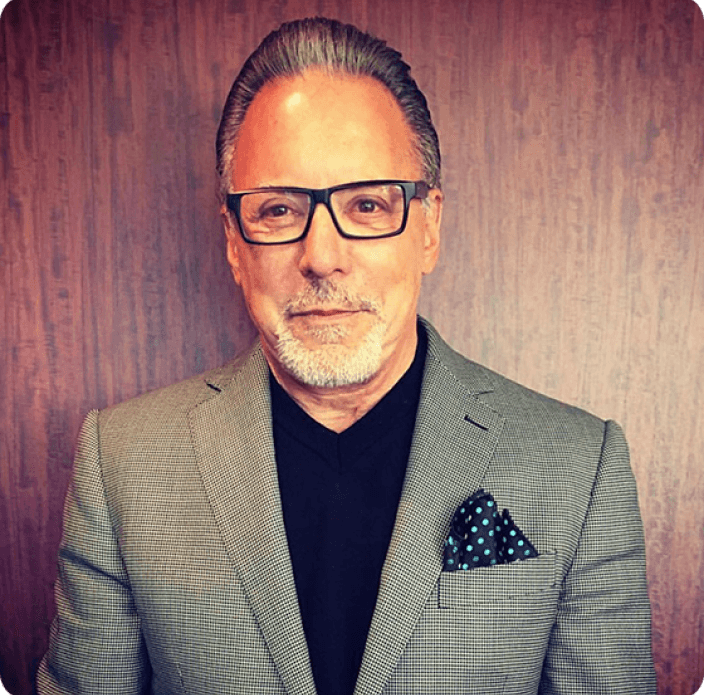
In #7 of Entrepreneur Disrupted, Jay Abraham distills one of the most powerful and little known skill sets for entrepreneurs: interviewing and listening. Jay is one of those $100,000 a day, very senior marketing guys with a career that’s almost hard to describe because it’s so varied. Jay shares some tips on how to be effective in selecting interview candidates to minimize the time you spend on those who are not the right fit for your culture, for your job, for your goal; how ethics plays into interviewing; and how it’s actually your responsibility to leave those you interview better off, regardless of whether you hire them or not, because you have the power to help them appreciate and understand themselves at a deeper level. All it takes for you disrupt the business world is to apply the information we share to your daily life!
Listen to the podcast here:
Entrepreneur Disrupted Mini-Series – #7: Interviewing
This episode is going to be a real treat because Dave and I are distilling one of the most powerful and little known skill sets for effective entrepreneurs to ever possess, interviewing and listening. Here we disclosed our own personal interviewing systems, methods, styles, the psychology behind it, and the processes we use along with the lessons we’ve learned and the indications they represent from all our years of interviewing. We teach how to be effective in selecting who you should be interviewing to minimize the time you spend on those who are not the right fit for your culture, for your job, for your goal, how ethics play into interviewing, how it’s actually your responsibility to leave those you interview better off, regardless of whether you hire them or not because you help them appreciate and understand themselves at a deeper level. I teach you my philosophy of Socratic interviewing which is probably singularly the most powerful single distinction I have developed and how I learned it from a lot of other mentors.
There’s a lot more exciting content within this episode and all I ask is for you to take action on what we share and not use it simply for your intellectual entertainment. David and I and any other colleague I share with you in these episodes or special editions are doing this for one reason only, not to be provocative and just stimulate you, but to be evocative and move you to take constructive, better, more powerful, profitable, and meaningful action and to be able to utilize that knowledge for the rest of your successful business life.
Dave Asprey here with Jay Abraham. If you’re new to the show, I’m a multi successful entrepreneur, running Bulletproof Executive, Bulletproof Coffee, human performance, stuff like that, but this show is not about that. This show is about operating and running and building great companies that kick a lot of ass. Jay is one of those $100,000 a day, very senior marketing guys with a career that’s almost hard to describe because it’s so varied. He was one of the guys who made Entrepreneur magazine into what it is today back when it was not really a magazine at all. We’re going to talk about interviewing because we just talked about hiring and firing, so this is a good skill set for entrepreneurs. What I want to know, Jay, is when you are going to hire someone relatively senior on your team, what is the process starting on day one? You realize you need to hire X person, what do you do it? Describe your funnel. Describe your process of hiring and interviewing.
Realize I’m eclectic. I want to know everything about you and then I want to know everything about what you did before. I want to know about the company and want to know about the other people that are still there. I want to know what your hierarchy was, see if it confirms and conforms with your resume. I want to put your name in and do a little check. I’m not as big at an initial level of doing background checks myself. I then want to have a very unstructured, but very strategic discussion with you in an environment that is very comfortable. I want to start with a dynamic that is set and forged of a joyous and not as serious, but not a laughable or flappable, person. It’s almost very embracive psychological beginning. I tell people that my style is going to be very different. I’m going to ask a lot of questions and then I’m going to encourage you to ask a lot of questions. If you don’t ask enough, I’ll even give you some cool questions to ask me that you might not have thought of because this is dual.
It’s not really just me interviewing you whether you realize it or not, it’s you interviewing me. We’re exploring a relationship, that if it’s successful and we are matched, is going to have an enormous impact on both of our lives, on our business, and also on where your career takes you. It’s important to me that I give you the most honest depiction of me, the business, our projected future, why we think that future is not just viable but realizable. I tell you issues that are actually threads constraints, and then I start asking you questions about three things. One, I want to know professionally, and two, I want to know more things about you in a humanistic. There are many reasons for that and they’re not trick reasons, they’re compatibility reasons. They are not just ability, but they are sustainability reasons, they are attitudinal reasons. Any conclusion that I come to, I will give you perspective. I want to know about your background. I want to know about your childhood. I want to know about your hobbies. The reason I’m doing it is I learned long ago that no two people have the same reality.
First thing you have to do is realize the vision, the canvass, the projector that they are playing for themselves. I want to know how different words are defined by them. I don’t want to hear the stock stuff because you know they’re going to tell you that. I want to ask them provocative, unexpected, but not trick questions. I also want to know who impacted them the most. I want to know what books they read. I want to know the last book they were reading. I’ll look it up and ask them to tell me about chapter three, and if they don’t remember it, I’ll give him the title to see if they really read it. I want to see how authentic they are in the complete context of not just an A player in terms of competency and mastery, but in a human being. I also tell them that my style is very interruptive. It is not meant to be disrespectful. It is not meant to be curt, but if they come up with an answer that fascinates me, I’m impulsive and I’ll step on them. Don’t take it as anything but my totally being in what I was going to say before, and then I’ll stop and go back to you because you have a lot more than I do. I learned long ago that they’re talking about getting connected to what their reality or their worldview or their reality check is. I want to know what their beliefs are. I want to acknowledge them. I want to understand them. I want to explore them with them. I want to respect them whether I agree with them or not, and I want them to feel heard. That’s what I did.
I love that answer and I’m thinking about what I do. I’m realizing that this is an area where, as an entrepreneur, I probably have more to learn here. I’ve hired various teams. I’ve acquired companies multiple times in my career, but I I’ve never been formally trained at any of the companies I worked in and how to be really effective at hiring. I’ve also not really trained people on my team to be really effective at it, so I realized that within the organization that I run within Bulletproof, there are different people who hire in different ways. One of the things that I put in to help with that is I have a Head of Culture. I ask my Head of Culture to interview everyone, and she has the ability to say, “This is not just a cultural fit even if the skills are there.” She does it as part of the screening. I’m not going to interview anyone who hasn’t already made it past my indirect who reports to my senior team. It just doesn’t make sense, but I don’t want to be a screener. I want to be, “After you guys have screened twenty candidates, I might help out with the top three.” I don’t even want it to be the CEO always has to decide.
The whole point of a functioning highly scalable company that can “pivot” on a daily basis if necessary is that it’s not up to the CEO all the time. I don’t want to make the decisions all the time. What I want to do is have a team that effectively makes decisions and that includes hiring, so when they’ve interviewed with the senior team in combination with the interview and they’ve passed the cultural fit, that ought to be a pretty small list of people. I’ll sit down with those people and then I’ll go back to the team and say, “These are the people who I think are a really strong. Here are the weaknesses.” Where I’m working on upgrading my own skill set is becoming much more militant and structured in my interviewing style with those people. I’m looking at doing more of a top grading and I realize this wasn’t a conscious behavior on my part, but by not being the most effective interviewer I can be, I’m actually doing a disservice to the people I’m interviewing.

Given that I’m going to interview a whole bunch of people, I always want them to understand that if they leave and go, “I didn’t take the job with Bulletproof,” or “I didn’t get the job with Bulletproof,” whichever way it goes, “It’s an amazing company and I regret not being there even though I might have found something that I liked better, someone is better fit or paid more,” whatever it was. That’s one of my goals because we are a cool company and I’d rather build goodwill than basically waste people’s time, insult them, and kick them out the door. Some hiring processes do feel like that. What I haven’t done as well as I could is work on making sure that I get perfect fit there, and I’ve been very fortunate, I’ve found some amazing fits. We have a very powerful team. I’ve had external consultants come in for organizational profiling and all that stuff that you do when you’re entrepreneur, and the general feedback is, “Dave, you have a team that’s high performance team.” It helps to have a company with high performance to recruit that. Most entrepreneurs when they bring in someone who’s really good at seeing through things, they find the team is not performing or has a lot of additional possible performance. My job over this year is to get better at that and to spend even more time on the interviewing.
Where I source things, number one is who do you know? I have a disadvantage in my business. If I was going to start a highly scalable technology company, computer networking or anything I would do with cloud computing or computer security, I have a Rolodex that will kick your ass because I’ve been doing that for a long time. When it comes to coffee, I’ve made some powerful relationships in the last few years. I’m really fortunate. One of the guys who train the judges for the Cup of Excellence is one of our advisors and a consultant to us. That’s how our coffee tastes so good, because I went to one of the best guys in the industry. By hiring senior people in the industry to work for Bulletproof, I’ve managed to grow that network. I don’t have decades of connections to recruit from, so I do rely on recruiting firms to help get the conversations with people. I have actually three of the first ten Starbucks employees that are working for Bulletproof now in one capacity or another. Starbucks is Starbucks. We’re about not Starbucks. You don’t want too much of one company culture. As an entrepreneur grows a company, you always run that risk of creating the good old boys club.
I worked at a big tech company a while back in the computer security space. It was called Blue Coat Systems and they’re doing $4 million or $5 million a year, a substantial thing but you probably haven’t heard of them unless you’re a geek. At that company, they had merged from a couple other companies before. There were three people on the executive team, the CEO and two others. If you weren’t from that old company, you were never going to be fully effective. You could never get anything done without getting buy in from this unwritten mafia. Many of the companies where I’ve been, you bring in one executive, they bring in their core team, and this happens in all industries where essentially you get a top level executive, they know their lieutenants and they want their lieutenants. Over the next six months after they’re hired, they recruit their lieutenants from all over the place and they bring the team together. This is a powerful way to get a functioning high performance team. It’s great unless that team culture is off or unless it’s exclusionary to things like that, so it’s one of the things I watch for.
I had a recent hire, another substantially experienced Starbucks employee, and for this employee, I basically said this has to be contracting. The employee was like, “What the hell? I think I’m pretty qualified for this job. I want the job. I like the job. What is it?” The answer was, “You might be too Starbucks.” I’m not picking on Starbucks here at all. This is the case here. I’m grateful that Starbucks brought a quality coffee culture to the Americans and all that. I just don’t want a company that operates and looks and acts like Starbucks because it should operate and act and look like Bulletproof. Entrepreneurs need to pay attention to the strengths that come from hiring and recruiting someone who has a network that they’ll pull in. The downside there is if 80% of your company comes from one other place, you’re going to function like that. I don’t want a culture that’s too collaborative. If we have a series of task force committees, which is the way large companies operate, whether they’re in coffee or somewhere else, to me that’s kryptonite. I don’t function like that. I don’t want the company to.
Part of my hiring process is what mix of cultures from other companies do we want? Is the person I’m hiring from a company with a healthy culture? If they had an unhealthy culture, what did they do about it? How did they react to it? It’s not uncommon if you, as an entrepreneur, bring in someone from a bigger company, you have to rehab them literally. It’s like, “Sorry, we have to stamp out that behavior. If you have a tyrant CEO, I’m not a tyrant CEO.” I dislike it when new employees come in, “Whatever you want, Dave.” That’s not how you support a CEO. What you do is you walk in and you say, “Here’s what I recommend we should do. Here’s why. What do you think?” That’s empowering a CEO than coming in, “What do you want?” “I want a massage.” There’re all sorts of crazy crap that I want, but it doesn’t matter that I want it. What matters is is it the right thing for us to do with our team? I exhaustively hire or exhaustively interview about that question like, “Are you going to come to me with ideas and recommendations after you studied the problem, or are you going to come to me to just know the answer, because if you’re looking for a daddy, that’s not me.”
How do you validate or verify? I’m going to say “No, I don’t do that.” I would suspect very few people are going to give you a negative answer.
What you do is you ask them, “The CEO says, ‘I want to enter a new market.’ What do you do?” You give them a scenario, and then you say like, “What are you going to tell the CEO?” and you’ll see pretty quickly. If they say, “What do you want to do?” and what they’re trying is they’re trying to be of service, but the thought there is that, an executive, even if it’s a peer, that by giving the decision-making thing to the executive, that you’re helping them because you’re showing you’re bowing down to their authority. Some executive, I’ve seen them literally berate people for making recommendations. I’ve worked for people like that. I once got soundly trounced. This was at a billion-dollar plus company. In fact, our market cap was more than $30 billion for awhile. At one time I did all the analysis, and the COO had gone through my presentation and thought, “You can present that,” and I added a slide at the end. I’m like, “I can’t do this without making a recommendation,” so I added the one slide at the end based on all my strategic planning work for the past six months, and the CEO just completely swore at me in front of the executives staff. I’m like 27 years old or something, I’m like, “What happened here?” The COO who is a pretty cool guy, very experienced, he took me aside and said “Dave, I went through your slides with you and your slides were really good.” He said, “But that last slide wasn’t one of the ones that I reviewed.” I said, “Yeah,” and he goes, “There’s nothing wrong with making a recommendation but that just doesn’t work here.”
How long did you stay there?
Given that at that company I made $6 million, I might have stayed there for a while. Every executive does their best at the time and it was an incredibly high stress time for everyone because you try growing from 300 to 5,000 people in three years, split your stock three times in a year. I’ve never been in a more stressful or more fun environment. You get in this kind of thing, and they’ve come down from other big tech companies and the culture there was you let the CEO decide and maybe the exec team in some of the times. I don’t want that culture. That’s not saying that’s a bad culture, but if the rigid rule is “You give me the info and I decide,” that’s cool. I don’t function well in a position like that.
It also castrates the very life blood that you’re seeking to create.
In the hiring process, to try and explain to someone, if you tell them that, they’re going to interview and they’re going to lie to you. One of the things that I’ve learned is C players and B players can write A-player resumes. There are services that do that. There’s a YouTube video probably on how to make a resume like a god, so the resumes aren’t that good. I If it’s someone who’s had ten years of interviewing, you’ve interviewed 50 times for jobs, you’re probably getting to be okay at interviewing and you’re going to say the right things, and then it comes down to your gut. There’s intuition. My other secret power, having done the 40 years of Zen program with increasing levels of difficulty ten times with electrodes glued to my head, I can pay more attention to what’s going on in my very subtle energy things. We know beyond a shadow of a doubt that when two humans are in a room, our hearts make a magnetic field, and that field influences people across from us. It’s most obvious in horses. You can show without a reasonable doubt when someone walks into a stable with a horse, the horse’s heartbeat’s pacing will change to match that of the rider, at least if it’s a horse that’s been ridden, not a wild horse. That’s pretty profound.
The same thing happens in a room. You can learn to sense whether this is going work and this is the same sense you’d see in Star Trek where the Klingons know that someone’s going to kill them before someone’s going to kill them. I interviewed Mark Divine, a former Navy SEAL commander, over on Bulletproof Radio, and we talked about “how do you know if someone’s aiming a gun at you and you can’t see the person who has a gun.” He was like, “You just know.” Learning for me to trust that “you just know” instincts and to actually get centered before an interview is really important. I’ll do a couple of minutes of heart rate variability training, and I’ll do the things that are going to make me more perceptive.

This is prior to the interview?
Yeah, just so I’m grounded, I’m in the zone. A lot of my interviews are over video conferencing because I live on an island. It’s not about establishing dominance. It’s just about turning on my subtle senses of perception. If I just get an icky feeling during an interview, I’m probably not going to hire the person. If more entrepreneurs were like “On paper, this person looks great,” but I think about what would it feel like working with this guy, and you get a little shudder and then you rationally say, “I really liked their backgrounds. This person has some skills to bring. I’m just going to ignore the shudder.” I don’t ignore the shudder. If it feels bad, it’s not going to happen.
First of all, I do something that maybe everyone does. I’ve been trained in supercritical, nonlinear thinking, which sounds like an oxymoron. First thing is if you give me your history, I’m going to look up everybody I can find on LinkedIn that was there, above you, below you, is still there, worked somewhere else, and I’m going to have those names, and then I’m going to ask you sometime in the latter part, “Am I free to call this person and that person or that person who appears to be someone you worked either side by side with, above, or below, or worked below you?” and if yes, “What do you think they will say?” If no, “Why do you not want me to call them?” I use the fact that I’ve done that research and then say, “Please understand why I’m asking.” It’s the greatest compliment. From everything I’ve seen in the initial discussions we’ve had, I truly believe there’s a basis of an incredible potential alliance. If I’m wrong for misperception that means that I’m taking you into a bad situation as well. I just want to get confirmation or clarity of understanding who you really are so that if it’s going to work out, I can make you the best you can be and perform at the highest, etc. The next thing I do as I’m judging him is are they mission critical or are they mission focused? There’s a difference of that, a very significant one.
You were talking about you’re at a disadvantage, but what I do is I go to everybody I can imagine that’s a subsidiary. It’s not in a competitive field, like you said in coffee, and I just say, “I want you to tell me anytime anybody you ever come in contact with who is great, is dissatisfied or constrained in whatever they do, because I want to interview them.” They may not have a match, but I want to hear their perspective as long as they’re an A player, whether it’s a company folding, a salesperson that’s gotten his or her budget moved up twelve times and the commission moved down, and that’s enough.
This is actually helping me to think about some of the things that I do and in a more structured way which is one of the things I was hoping that would come out of this. One of the areas that entrepreneurs tend to short themselves on is around introspection because we’re so damn busy. There are so many demands on us from customers, partners, from suppliers, from family and all of this. There’s this constant business thing that isn’t good for strategy and it isn’t good for helping you realize what you can do. I spend a good amount of money each year going to workshops and things to help me focus on this because at least it’s a structured way to focus on it. In fact, three days before we were recording this episode, I was at Strategic Coach with Dan Sullivan where I spent a whole day going through some structures, stuff like that, just to pay more attention. To sit here with you all day and record these things is helping me realize I need to spend a little more time on this, and that I am spending time on it while we’re sharing value with other people, so it’s killing two birds with one stone.
One final thing, I like a lot of old adages and I never used to like them until I realized how true they were. I’m not going to do it justice, but if you can “learn to slow down to run faster,” it will be very valuable. Secondly, our lives are so busy. I have a problem in what I do. I have 40 different clients I counsel and none of them are in the same industry. I tend to be almost like somebody talking in tongues. I’m so focused, and then I go to the next one, and the next one, and I have to work very hard to stop and say, “What did I learn about myself? What did I learn from them? What did I come up with that has universal implications? What did I come up with from this that I need to do again? What did I do that I know because I could sense the turnoff?” People need to give themselves permission. It’s not going to be the right verbiage, but to incorporate deep, focused, critical and reflective thinking in between all the different shifts that go on in their business life.
What you learned in this episode hopefully was some tricks about knowing when to hire and knowing how to hire. These are precious skills for entrepreneurs. Your homework for today’s episode is talk with your business coaches if you’ve got one. If you don’t have one, find another entrepreneur that can be in your industry and some other industry and talk about how you hire. Just sit down over, I would say coffee, seriously. Sitting down over a beer is not a high performance decision, but if you must, you can do it. Definitely not scotch. Maybe vodka, but whatever you sit down over, sit down, take an hour, schedule lunch, and actually just say “I am thinking about hiring. I’ll tell you about where I’m working on it and where you’re working on it.” You will learn so much about how you can accelerate your company. It’s time well spent. Just like for me, this interview is time well spent. Thanks.
Thank you, Dave, for sharing.
Important Links:









